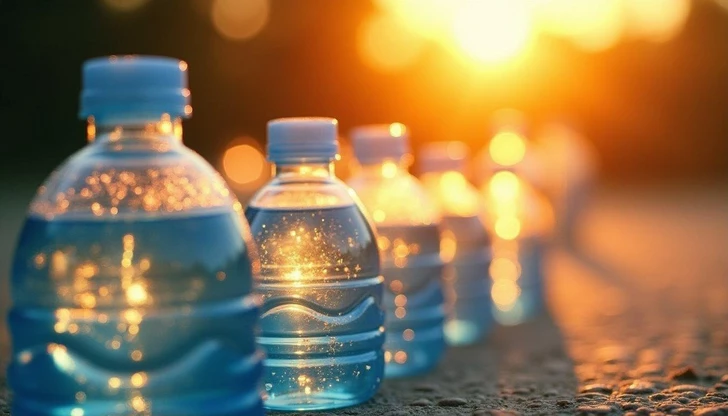Baku, August 17, 2025 On hot summer days, bottled water often becomes the first choice for quenching thirst. Yet across markets and roadside stands, it is not uncommon to see rows of plastic bottles left baking under the midday sun. By the time they reach store shelves, these drinks may already have undergone chemical changes that pose risks to human health.
Heat Turns Plastic into a Threat
Therapist Panah Panahov warns that bottled water exposed to direct sunlight for long periods can become unsafe. “When plastic is heated, harmful compounds are released, which negatively affect the endocrine system,” he explained. Symptoms linked to such exposure include nausea, abdominal pain, dehydration, weakness, skin reactions, and even food poisoning.
According to Panahov, spoiled water may show signs such as a chemical odor, moldy smell, cloudiness, sediment, or an unusually bitter or sour taste. He also cautions against reusing single-use bottles: once heated, the material loses strength, develops micro-cracks, and releases toxins into the liquid.
Chemicals of Concern
Nutrition expert Asim Veliyev confirms that high temperatures accelerate the leaching of dangerous substances. Among them:
Antimony, used in plastic production, which in high doses has toxic effects.
Phthalates and bisphenol A (BPA), linked to hormonal disruption, cancer, and infertility.
Veliyev notes that even in closed bottles, dangerous compounds can seep into water within hours if the temperature rises above 30°C. In opened containers, the risks increase as microbial contamination becomes more likely.
Mineral vs. Drinking Water
Food engineer and nutritionist Farid Safarov explained that mineral water is even more vulnerable to sunlight than regular drinking water. “The higher concentration of salts and minerals makes it more prone to chemical reactions under heat and light, altering both taste and composition,” he said. Safarov also dismissed the common belief that bacteria die in heated water. “On the contrary, they multiply, unless water is boiled close to 100°C.”
Safer Alternatives and Official Rules
Experts recommend storing water in cool, shaded areas and, when possible, using glass or stainless steel containers or certified BPA-free plastic bottles.
The Azerbaijan Food Safety Agency told Media.Az that bottled beverages must be stored at 20–25°C, and leaving them outdoors under the sun is strictly prohibited.
“We conduct regular inspections to identify violations of storage rules,” the agency said, adding that consumers should always check production and expiration dates, packaging integrity, and consistency of labeling before purchasing.


